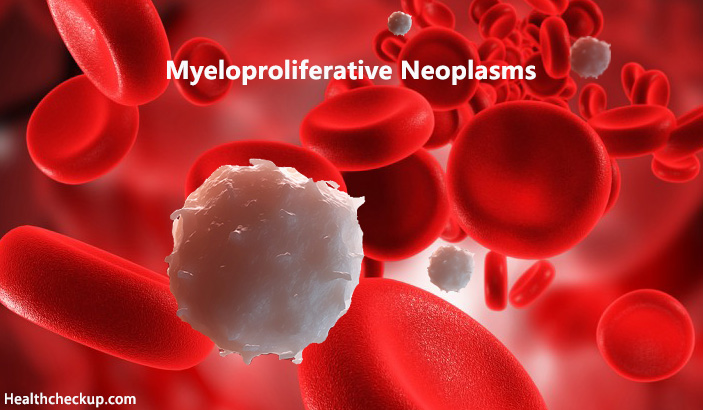
Myeloproliferative neoplasms (MPNs) are a group of rare blood cancers that occur when the body produces too many blood cells in the bone marrow. MPNs can cause a range of symptoms, some of which are mild and others that can be more severe. Recognizing the symptoms of MPNs is important for early diagnosis and treatment. In this article, we will explore the common symptoms of MPNs and their impact on the body.
1. Fatigue
One of the most common symptoms of MPNs is fatigue. Patients with MPNs often experience extreme tiredness, lack of energy, and a general feeling of weakness. This can be due to the body’s overproduction of blood cells, which can lead to anemia and reduced oxygen supply to the body’s tissues.
Furthermore, the overproduction of blood cells can cause the blood to become thicker, leading to poor circulation and increased strain on the heart. As a result, fatigue is a persistent and debilitating symptom for many individuals with MPNs.
2. Enlarged Spleen
Another common symptom of MPNs is an enlarged spleen. The spleen is an organ located in the upper left side of the abdomen, and it plays a key role in the body’s immune system and blood filtration. In MPNs, the overproduction of blood cells can cause the spleen to become enlarged as it works to filter out the excess cells.
An enlarged spleen can cause discomfort or pain in the abdomen, feeling of fullness, and early satiety. In severe cases, an enlarged spleen can also lead to complications such as a decrease in platelet count and an increased risk of bleeding.
3. Excessive Sweating
Excessive sweating, particularly during sleep, is a common symptom of MPNs. The body’s overproduction of blood cells can cause a disruption in the body’s normal temperature regulation, leading to night sweats and excessive sweating during the day.
People with MPNs may also experience fever and chills, which can be a sign of an overactive immune system or an infection. Excessive sweating can be distressing and impact a person’s quality of life, often leading to sleep disturbances and fatigue.
4. Unexplained Weight Loss
Unexplained weight loss is a symptom that can occur in individuals with MPNs. The overproduction of blood cells can increase the body’s metabolic rate, leading to unintended weight loss despite maintaining a regular diet.
Weight loss can also be a result of the body’s decreased ability to absorb nutrients due to an enlarged spleen or digestive issues. Unexplained weight loss should be evaluated by a healthcare provider, as it can be a sign of a more serious underlying condition such as MPNs.
5. Bone Pain
Bone pain, particularly in the pelvis, ribs, and long bones, is a common symptom of MPNs. The overproduction of blood cells in the bone marrow can lead to increased pressure within the bones, causing pain and discomfort.
In addition, bone pain can be a result of an enlarged spleen pressing against the bones or the accumulation of excess blood cells within the bone marrow. Managing bone pain is an important aspect of MPN treatment and requires a comprehensive approach to address the underlying cause.
6. Headaches and Dizziness
Headaches and dizziness are symptoms that can occur in individuals with MPNs, particularly those with polycythemia vera (PV) or essential thrombocythemia (ET). The overproduction of red blood cells or platelets can lead to an increase in blood viscosity and blood flow disturbances, which can manifest as headaches and dizziness.
Additionally, high blood pressure, which is common in individuals with MPNs, can contribute to headaches and dizziness. Managing blood pressure and blood viscosity are important for preventing complications associated with headaches and dizziness.
7. Itching (Pruritus)
Pruritus, or itching, is a symptom that can be associated with MPNs, particularly PV. The exact cause of pruritus in PV is not well understood, but it is believed to be related to changes in blood cell counts, increased histamine release, and alterations in the microvasculature.
Pruritus can be distressing and impact a person’s quality of life. It often presents as a burning or crawling sensation on the skin, and can be intense and persistent. Managing pruritus is an important aspect of caring for individuals with MPNs and requires a multifaceted approach.
8. Vision Changes
Changes in vision, such as blurry vision, double vision, or visual disturbances, can occur in individuals with MPNs. These symptoms can be a result of increased blood viscosity, blood vessel damage, or changes in the circulatory system affecting the eyes.
Vision changes can be alarming and impact a person’s daily activities. It is important for individuals with MPNs to have regular eye examinations and report any changes in vision to their healthcare provider for further evaluation.
9. Bleeding and Bruising
Bleeding and bruising tendencies are common symptoms of MPNs, particularly in individuals with essential thrombocythemia (ET). ET is characterized by an overproduction of platelets, which can lead to increased clotting and bleeding tendencies.
People with MPNs may experience easy bruising, nosebleeds, and prolonged bleeding from minor injuries. It is important for individuals with MPNs to monitor their bleeding and bruising symptoms and seek prompt medical attention if they are severe or persistent.
10. Shortness of Breath
Shortness of breath is a symptom that can occur in individuals with MPNs, particularly those with polycythemia vera (PV). The overproduction of red blood cells can lead to an increase in blood viscosity and a decrease in oxygen delivery to the body’s tissues, resulting in shortness of breath and difficulty breathing.
Shortness of breath can be a distressing symptom that impacts a person’s ability to perform daily activities. It is important for individuals with MPNs to manage their red blood cell count and maintain optimal oxygen levels to reduce the impact of shortness of breath.
In conclusion, recognizing the symptoms of myeloproliferative neoplasms is crucial for early diagnosis and management of the condition. If you or a loved one experience any of these symptoms, it is important to seek medical attention for a comprehensive evaluation and appropriate care.

















